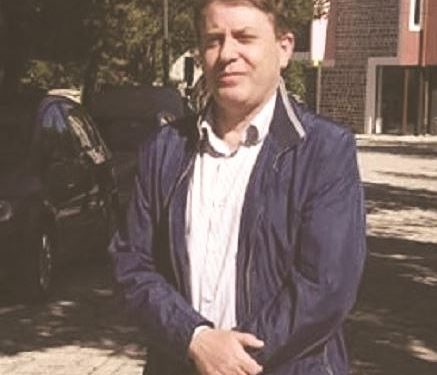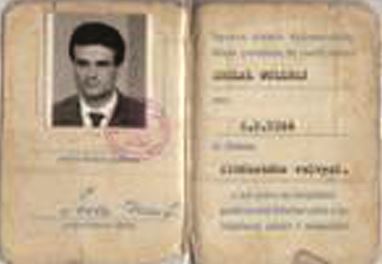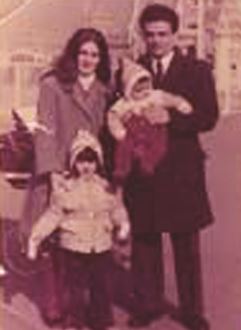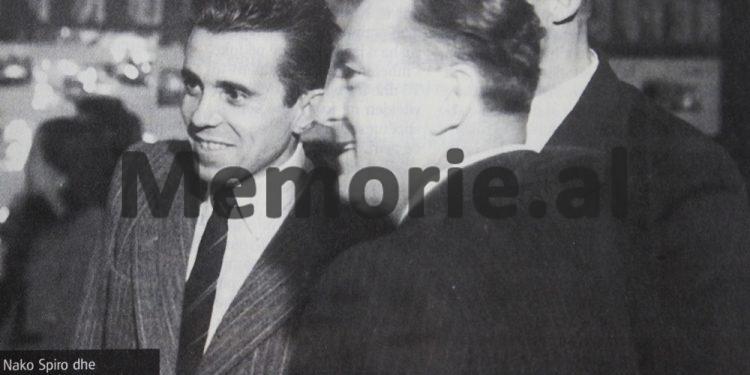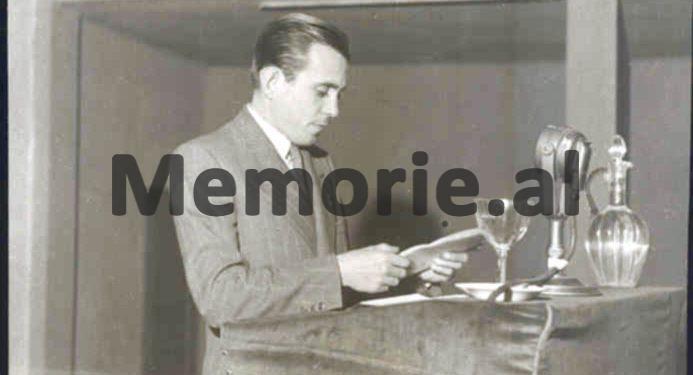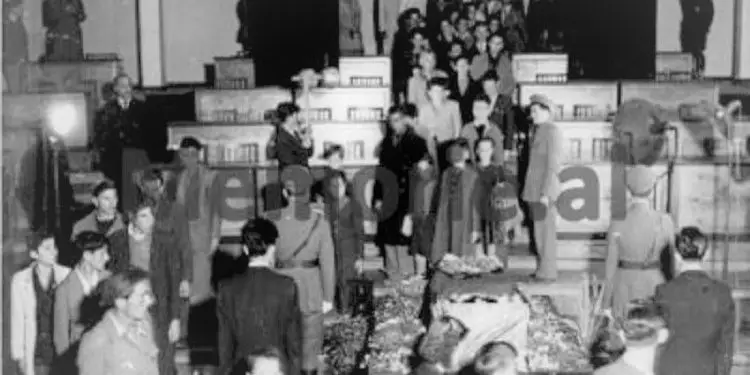From Luan Shtepani
Memorie.al / “Prague (Zllata Praha) is the place where I spent part of my youth, it is a miracle of nature with generous, disciplined and highly cultured people. My biggest wish is to visit this place again. This is the pledge I’ve been holding all these years.” This is how the conversation started with the former Albanian diplomat, Xhelal Çullhaj, who on May 25, 1975, he was assigned to work at the Albanian embassy in Czechoslovakia, which was located at the address “Prague 6 Podkashtan” (under the chestnut tree). Xhelali says that when he was informed that he will work in Albanian diplomacy, he was surprised, but at the same time, he swore that he would serve with dedication and piety.
Together with his wife Servete, pregnant at the time, with their daughter Eglina, they left Tirana with “Malevi”, with a one-night stay in Budapest, where they were received by diplomat Viktor Dhrosa.
The latter recognized the newcomers, with parts of Buda and Pest. Xhelali remembers that the first gift outside of Albania for his wife, a pair of shoes and sandals, was given by Viktor’s wife, an excellent woman full of virtues.
They spent the night in a hotel with good conditions, while in the morning, with the “Malev” line, they traveled to their destination: the main airport of Prague.
“As soon as the plane landed, I felt that I had come to another world, where the order and beauty of that country gave me from the beginning a feeling that, unfortunately, I had not experienced in my country. The person in charge, Sulejman Muftiu, together with his wife, Tefta, had come to meet me. As I was driving to the embassy, I wondered what the reception would be like there. I was impressed by the road.
Everything was beautiful. We entered the embassy, which resembled a small and charming castle, amidst the greenery of centuries-old wild chestnuts.
This is what Xhelali tells, who adds that the ambassador made the presentation to him, first of all wishing him success in his duties and at the same time, giving a brief exposition of his activity in Tirana, in the Construction-Mining Enterprise.
Immediately he settled in the palace of diplomats at “Usmalltovni No. 22”, where Russian, German, Romanian, Yugoslav, etc. diplomats lived. The first day of work would be May 27, 1975.
To our question, how were Albania’s relations with Czechoslovakia at that time, he answers that they were good, despite the fact that the country was under Russian dictation, where their foundations were very powerful.
“We had a time with Russia that was broken, however the exchanges with Czechoslovakia were good in all spheres, with clearing (goods for goods), where Albania exported chrome, copper, iron-nickel and imported means of transport, very necessary for our place. While the “Tatra” type cars that we remember, were bought with cash.
The standard of living in that country was very good and could not be compared with Albania of those years, where there was no “Illyria” radio and bicycles, or refrigerators and televisions, which were bought with authorization. The simple worker had a Hate (small cottage) to spend the holidays, a car, not counting the intellectuals, who enjoyed great privileges.
We were in dire straits. We believed that one day our country would have these standards and in this context, all our efforts would be focused on getting as many results as possible”, recalls the former diplomat.
Regarding the activity there, among others he remembers that; at every step our diplomatic corps was “surrounded” by the Czech, possibly Russian, secret services. Propaganda materials (of the time) were distributed to lovers of our homeland and to Albanians who left, where the majority were Kosovars.
Also among Greek citizens, whose fathers had stayed in our country for 2-3 years after the war, where they had left to settle in the socialist camp, one of which was Czechoslovakia.
The only person who did not accept materials was Nako Spiro’s brother, Kristaqi, who, after finishing his studies, refused to return to Albania. He lived at that time in the neighborhood “Prosek”, a name similar to an area of Mirdita.
“They killed my brother, I didn’t go there, I respect you a lot, I don’t want any kind of material, please, if you have the opportunity, don’t leave me a ‘Sporti’ newspaper without giving it to me” – quotes Xelali, who together with a his friend, went to a friend of Albania in Bratislava, to give him some materials.
“When we finished work (we knew we were under full surveillance), as soon as we arrived at the car, we saw Security men everywhere, but like in Albania, the embassy personnel were not stopped, only watched for the actions they performed. I also remember the Russian demonstration with tanks and armored vehicles, with all kinds of weaponry on the streets of Czechoslovakia.
Everywhere would be present; the eye of secret agents, however, the work would be carried out to the maximum possible, until my departure, in December of 1979, together with the family and one more member, Kreshnik, who was born in Prague, on August 21, 1975.
After many years, I have it fixed in my memory as it is now: I met in Tirana, with a colleague of mine from the embassy, who told me that after my departure, he was settled in the apartment that I had left. According to him, one night there was a knock at the main gate, and there were three people in uniform and two civilians standing behind the door.
They told him: ‘We are looking for Xhelal Çullhajn, we have an arrest warrant’. He told him; I am not him, after this word, they left indignantly. Yes, this person tells me that; what work had I done there, I answered you: in the service of my country, just as you did.
In January 1980, two people from the Ministry of Foreign Affairs meet me at the Construction-Mining Enterprise where I worked and was again employed, after returning from Prague. They declared to me that; I was scheduled again for the diplomatic service and that I was available. But, the unexpected happened.
Due to an incident, the class war started against my family. Although with many work orders and medals I would be looked at askance. With work and dedication to duty, I would multiply the respect for all those who had known me and for strangers, who were surprised when I told them where I worked and that they did not look favorably on me, despite the fact that I had done nothing.
Years would pass and precisely on December 28, 1990, I would become one of the first to join the ranks of the Union of Independent Trade Unions of Albania, where I would contribute to helping the Albanian workforce, which deserved to enjoy all the rights, that I had 15 years ago and that I hoped would become a reality in the land of eagles.
Believing in change made me more courageous, not stopping to demand the denied rights. In no case and for no reason did I break away from the workers’ movement, which at that time was significant and hopeful. But a few years later, I, a participant in the event of February 20 and a witness to many events, on the day of the fall of the bust, I was kept isolated in the police, because I was a participant during the activities developed by the unions, which were supported at that time by the leader of December, the late Azem Hajdari. I declare this with regret, because in no case, I did not think how it is possible to act in this way with people who seek justice and social peace”.
This is where the confession of the former diplomat Çullhaj ends, as he cannot stay without mentioning that he will continue to contribute to improving the image of the unions, which have lost credibility, thanks to the negative contribution of some leaders, who have used it as a springboard. , to have personal and not collective benefits.
Saddened by these actions and very optimistic about the future of the workers’ defense lawyer, he expressed that every day, every hour and every minute, he will not stop his efforts to unite all those who honestly love the workers’ organization. .
In the end, the conversation closes with longing for Czechoslovakia, which increases as he looks at a group of veterans, former students there, who know him, respect him, and often invite him to talk with them, about the country that God forgave his beauty natural and spiritual. Memorie.al




